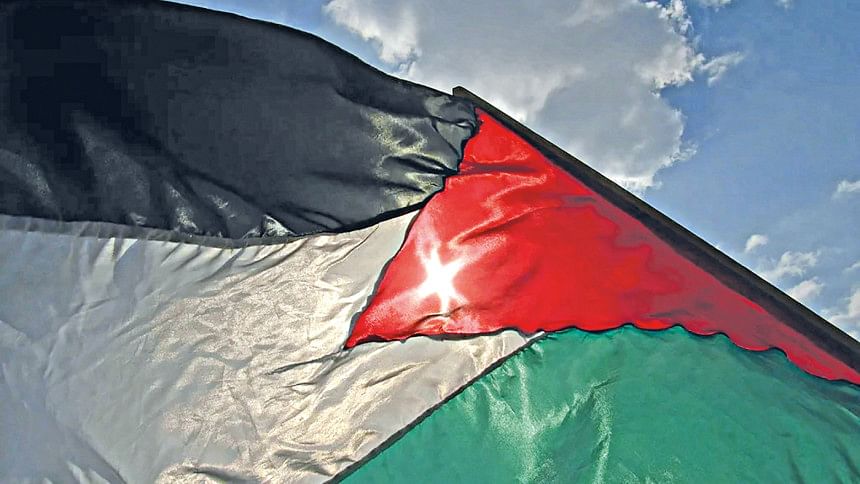The statehood of Palestine

Much can be said as to the ongoing genocide, war crimes, crimes against humanity in Gaza, and the flagrant violations of International Humanitarian Law as well as International Human Rights Law by the Israeli occupation forces. It is important to understand what drives them to commit these heinous crimes— self-defence, imperialist ideologies, theological rights of the holy land, thirst for more power, thirst for the remaining unoccupied land, or perhaps the false sense of superiority, the sense of looking down upon the Palestinians as lesser human beings.
On that note, what needs to be first discussed is the decades-old question of the statehood of Palestine through the efficacy lens of international law theories and in the eyes of the so-called world leaders. Perhaps a seat as a state, equal to all the other 193 states, at the United Nations (UN) will make the global elites not look down upon the Palestinians as lesser human beings; perhaps the abstract legal fiction of sovereignty and statehood will make Netanyahu and Trump think twice before sending in another barrage of missiles; perhaps settlement of this statehood issue will at least make them stutter before speaking about forced displacements and ethnic cleansing in broad daylight; perhaps, just perhaps, it will provide a much needed lumbar support to the rulers of the Middle East for them to truly stand up against the decades of oppression and occupation of Israel, in the proper materialisation of 'collective Self-defence' alongside Palestine.
There are two governing theories relating to the role that 'recognition by other states' plays in the determination of statehood in international law, namely the constitutive or recognition theory and the declaratory theory. As per the constitutive theory, a state can enjoy international personality only if it is recognised by the other already existing states of the international community. However, Article 3 of the Montevideo Convention on the Rights and Duties of States 1933 (Montevideo Convention) prescribes that recognition is not required to bring a state into existence. If the existence of statehood were dependent on recognition, the determination would become dependent on the political considerations of other states and may create complex situations where a state is considered a state according to some states but not others. Notably, with regard to Palestine, as of March 2025, 147 countries of the world, almost 75 percent of the UN member states have recognised Palestine as a state.
On the other hand, under the declaratory theory, a state becomes a state by fulfilling the minimum criteria of statehood under the Montevideo Convention (Art. 1). The elements of statehood laid out in Article 1 are— defined territory, permanent population, government, and capacity to enter into relationships with other states. It is submitted that all of them are satisfied by the state of Palestine. After fulfilling these required elements, in modern times, a state acknowledges itself as a state before the whole world through the Unilateral Declaration of Independence (UDI), as did Bangladesh in 1971 in the exercise of the people's right to self-determination. Palestine also voiced her UDI back in 1988. However, the dependency of statehood on the coloniser and the occupied forces, as well as the hypocrisy of the United States as the all-knowing moral police of the world, have restricted Palestine from gaining a full member status at the UN.
In the context of Palestine, even after fulfilling all these requirements under both the theories, the state of Palestine is yet to be allowed to sit at the negotiating table with Israel regarding ceasefire as equal states and equal sovereign authorities. The centralisation of power within the big five veto-powered nations, their dogmatic self-interests, and the creation of an extra-legal international environment with express patronisation by the US has led to these unimaginable sufferings of the Palestinian people. Nevertheless, hope is what we have right now and the worldwide movement for the statehood and permanent full-member status of the state of Palestine is definitely a step in the right direction.
The writer is lecturer, Department of Law & Justice, Bangladesh University of Business and Technology.

 For all latest news, follow The Daily Star's Google News channel.
For all latest news, follow The Daily Star's Google News channel. 



Comments